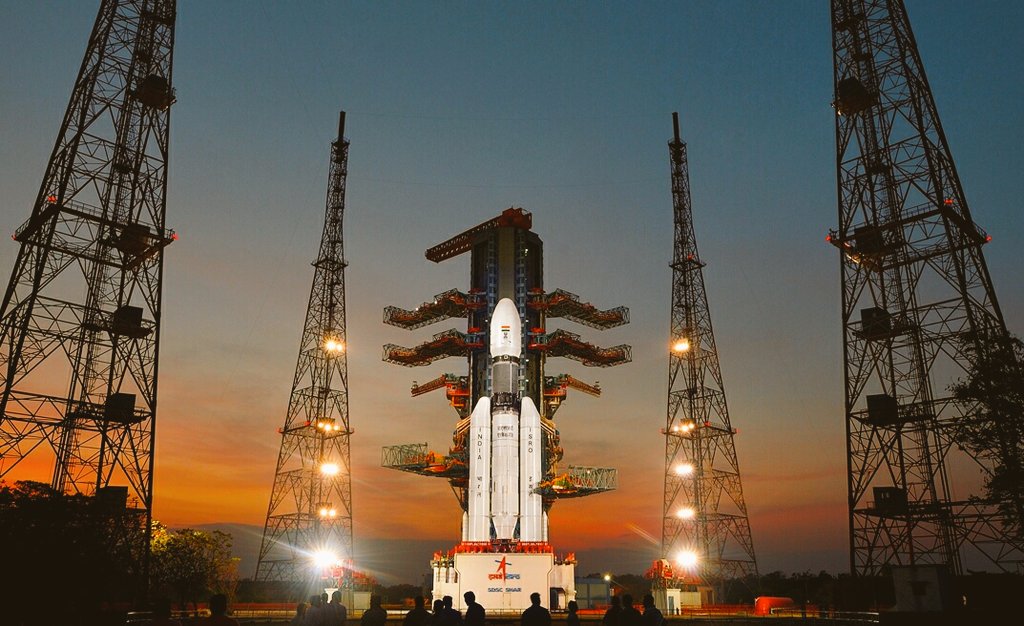Nikunja Bihari Sahu
The decision of the Union Cabinet to open up the country’s Space sector for private participation has come as a welcome response from many quarters including the highly respected ISRO.
ISRO chairman K Sivan has said the step would not only result in the accelerated growth of the sector but also enable Indian industry be an important player in the global Space economy.
The far-reaching reforms in the Space sector announced by the cabinet are primarily aimed at boosting private participation in the entire range of the country’s space activities. Private firms will now be allowed to use the facilities and infrastructure of ISRO for building satellites, for launching rockets, and for participating in many Space-based activities including planetary explorations. The outcome of this policy is many-faceted.
First, this would allow ISRO to focus more on R&D and innovations and developing cutting-edge technologies for future Space explorations. It can leave the routine activities like satellite development and medium resolution imaging to competent local industries.
Second, if the competence is created among private players to produce the entire range of satellites and launch vehicles, they could eventually capture the global market, taking advantage of the lower running costs in India as a stepping stone. This, in turn, could help in the creation of a vibrant Space industry in the domestic market that can match some of the best establishments in Space, IT and biotech sectors around the world.
Third, despite the presence of nearly 100 companies around the globe building satellites and other Space-based infrastructure, global trends show governments increasingly prefer their own players for awarding contracts to cater to their domestic demands rather than relying on foreign vendors. Hence, the decision to open up the Space sector to private parties would help shape a vibrant domestic market. This would eventually help materialise the cause of a self-reliant India (Atmanirbhar Bharat).
Fourth, for Indian Space companies, the biggest customers for their satellites and launch services would be the various government departments such as Meteorological, Defence, and Disaster Management. For satellite applications such as earth observation data and analytics, various state governments would also be the major customers. Hence, the domestic Space market, once created, would survive on its own as there would be no deficiency of customers within the country.
Finally, given the large pool of engineers and highly skilled human resources available here, Indian companies and foreign Space companies would hopefully attract partnerships from foreign markets to establish large-scale manufacturing hubs and service facilities in India. This would lead to the flourishing and streamlining of the sector.
The latest announcement comes as ISRO prepares for its third planned lunar exploration mission Chandrayaan-3 and its first manned mission to Space, Gaganyaan. As the earlier Chadrayaan-2 project had not been able to achieve the desired mission objectives because of the crash-landing of the Vikram Lander minutes before its touchdown, ISRO has to quickly revisit its strategies and come up with new technological innovations to achieve the mission objectives of Chandrayaan-3. Since Gaganyaan is a manned mission, it is imperative that no compromise is done with the safety of the astronauts, and they have to be safely returned to Earth after accomplishing the mission objectives in Space. Hence, the entire range of activities from launch to re-entry has to be executed by ISRO in a flawless manner so as for it to establish itself as one of the leading and credible Space agencies of the world. For this, ISRO has to mainly concentrate on innovations rather than wasting time and manpower over trivial jobs that can easily be outsourced.
The opening of the country’s Space sector for private participation would save ISRO of many unnecessary involvements in its hectic schedule and would come as an opportunity for accomplishing many technological breakthroughs and challenging tasks in Space as demanded by the hour. Hence, the decision of the cabinet is a significant reform long-overdue. This will make India internationally more competent, foster innovation in Space exploration and increase utilisation of public infrastructure built over the last five decades.
The writer is Education Officer, Regional Science Centre, Bhopal.
